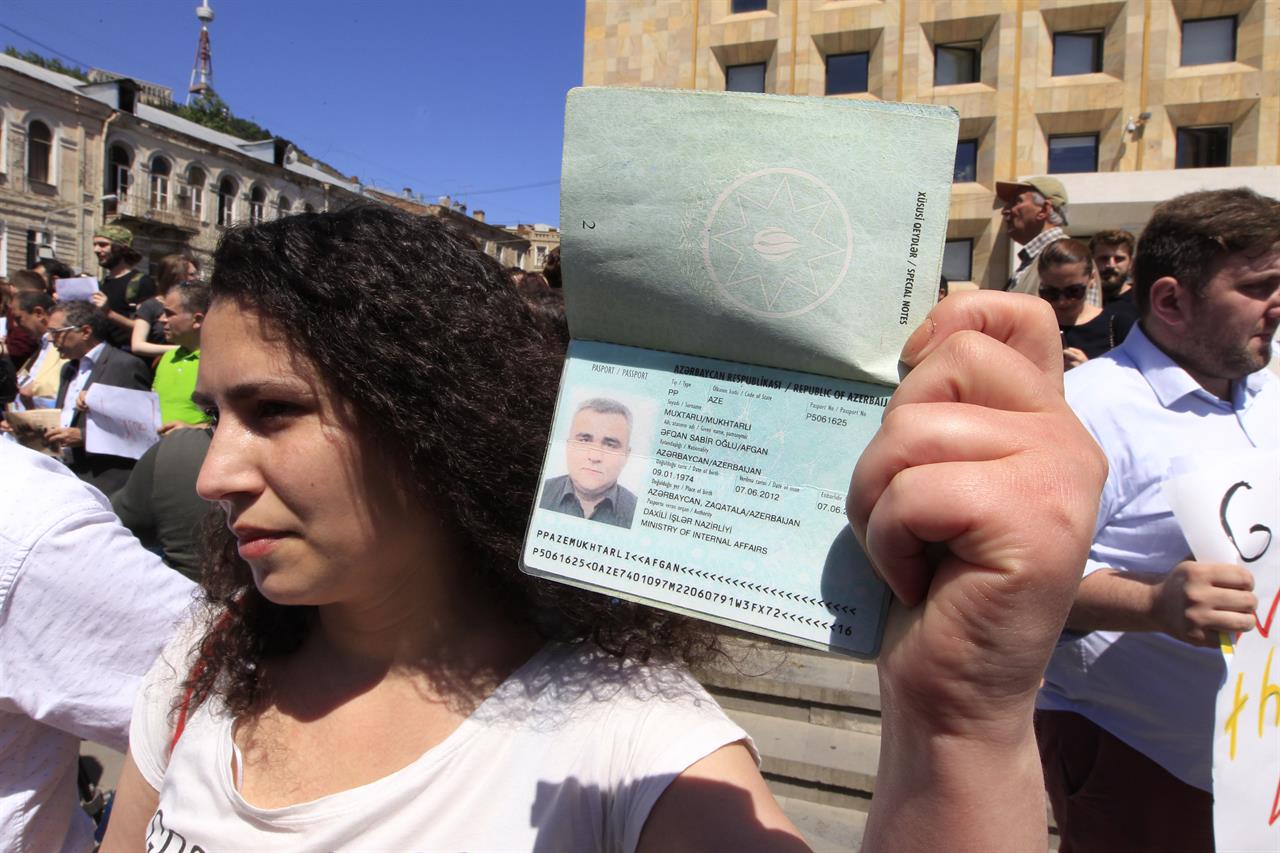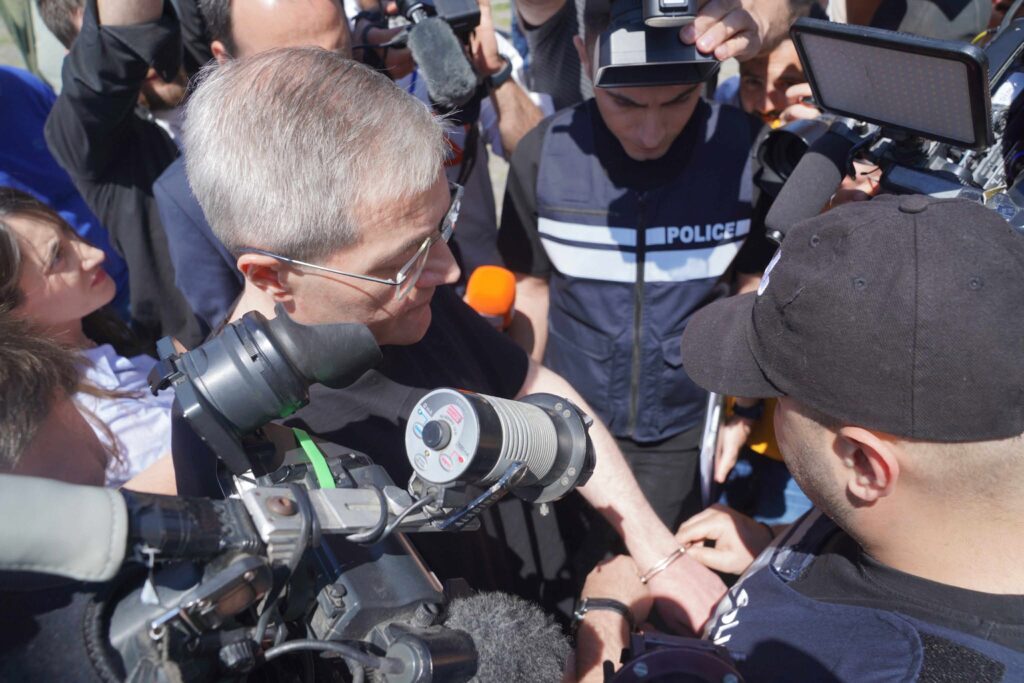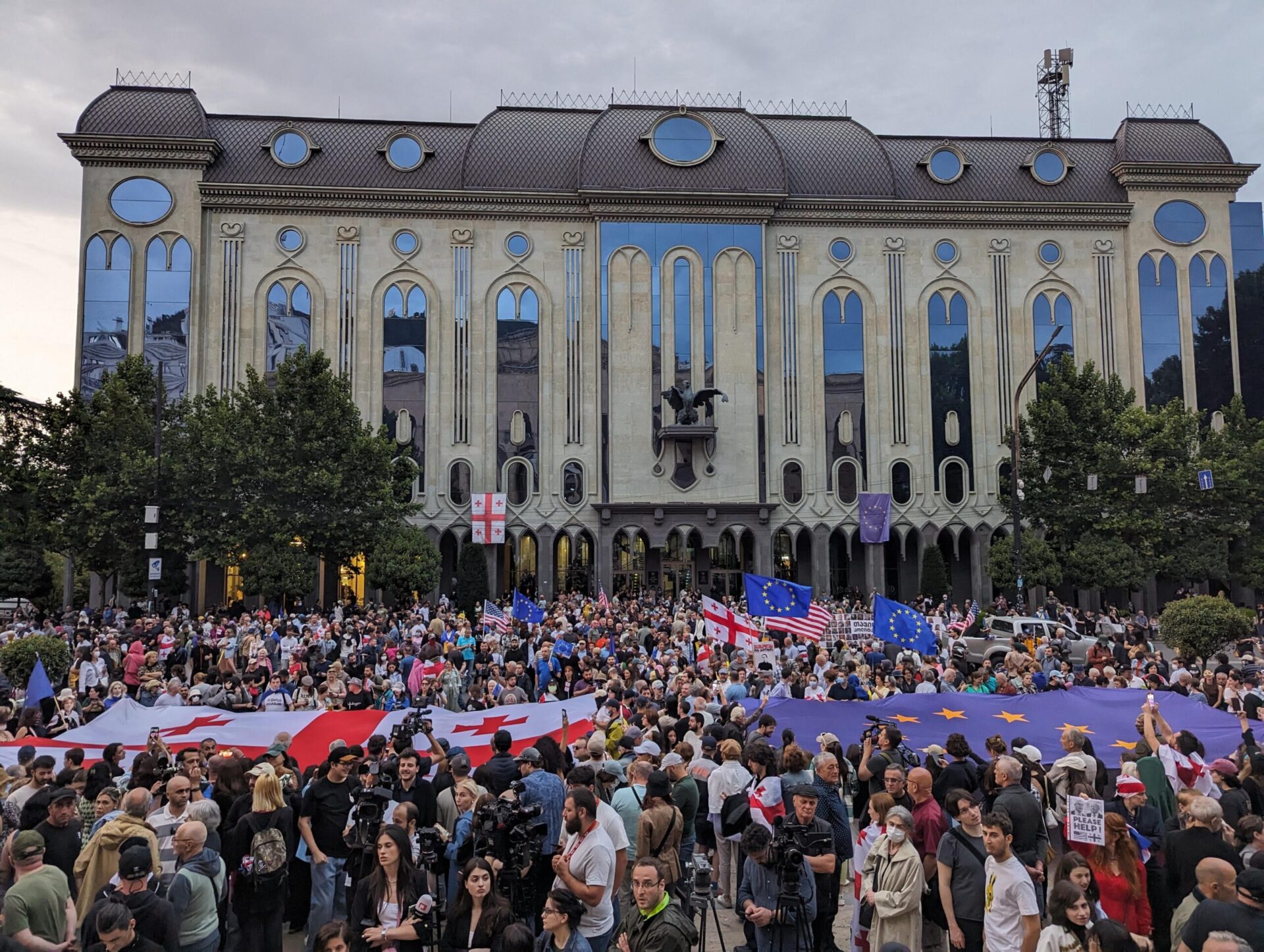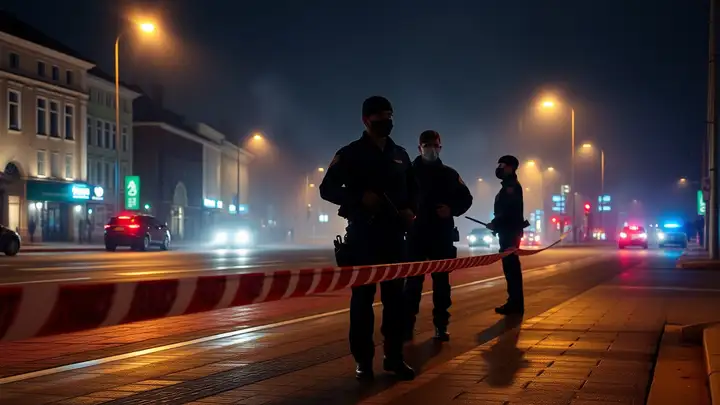
Extradition Cases of Azerbaijani and Turkish Citizens Raise Ire in Georgia
Extradition Cases of Azerbaijani and Turkish Citizens Raise Ire in Georgia
“I do not know whom we should ask: [magicians David] Copperfield or [Zurab] Vadachkoria? How can it happen that a person disappears from point A and appears at point B?” wondered Georgia’s President Giorgi Margvelashvili, on June 2, in response to reports about the puzzling “disappearance” of Azerbaijani journalist Afgan Mukhtarli in Tbilisi (President.gov.ge, June 2). Mukhtarli, a known critic of the current Azerbaijani government, was last seen in downtown Tbilisi on May 29. The following day, May 30, Mukhtarli surfaced in Azerbaijan, where he was taken into custody, charged with illegally crossing the border, smuggling, and resisting border guards. He was placed under three-month preliminary detention in Baku.
The journalist’s Georgian and Azerbaijani lawyers claim, based on conversations with their defendant, that Mukhtarli was kidnapped by four Georgian-speaking persons, three of whom were wearing law enforcement uniforms. According to the lawyers, Mukhtarli was put in an Opel-make car, handcuffed, and a bag was placed over his head. Mukhtarli was physically abused, after which he was driven to Azerbaijan and transferred to Azerbaijani authorities, who allegedly planted $10,000 on him to frame him for smuggling (Radiotavisupleba.ge, June 3).
The incident sparked numerous protest rallies by journalists and human rights groups in Tbilisi and Batumi. Mukhtarli’s passport was found at his Tbilisi apartment, and his wife and co-activist, Leila Mustafaeva, accused Georgian authorities of having orchestrated an abduction in collaboration with their Azerbaijani counterparts (1tv.ge, June 1). Living in Georgia since 2015, and seeking political asylum there, Mukhtarli and Mustafaeva conducted critical investigative reporting on Azerbaijani President Heydar Aliyev and his family business for the Internet platform Meydan TV.
International organizations Amnesty International and Human Rights Watch, Janos Herman (the head of the European Union Delegation to Georgia), as well as the US Department of State have all issued statements urging the Georgian side to carry out a rapid and thorough investigation of the alleged abduction (State.gov, June 3). Prime Minister Giorgi Kvirikashvili ruled out any involvement of the government in the incident (Civil Georgia, June 1). Kvirikashvili addressed the president of Georgia with a request to expedite granting Georgian citizenship to Mukhtarli’s wife and daughter, which, however, Mustafaeva refused, demanding instead due punishment of the perpetrators (Netgazeti.ge, June 3).
Opposition party Movement for Liberty–European Georgia stated that, according to its information, “high officials from the Security Service of Georgia and Ministry of Internal Affairs were involved in the crime” (Tabula.ge, June 3). Whereas, Salome Samadashvili, of the formerly ruling United National Movement party, demanded that the heads of both government agencies be removed from their posts due to the failure to prevent the alleged high-profile kidnapping (Unm.ge, June 1). Yet, this incident is not the first instance of Georgian authorities being confronted with charges of failing to properly exercise the functions of a sovereign and democratic state: either by preventing an alleged politically motivated abduction or by not withstanding pressure from neighboring states to extradite their political opponents.
About a week before the Mukhtarli case, Turkish national Mustafa Emre Çabuk—a founding partner of Turkish Schools in Georgia and a manager of Demirel College—was arrested on May 24 and placed in pre-extradition custody in Tbilisi. This occurred on the basis of a warrant presented to Georgia by the Turkish authorities for Çabuk’s alleged connection to the Fethullahçı Terör Örgütü (FETÖ) “terrorist organization” (Georgiatoday.ge, May 28). The private Demirel College is associated with the Çağlar educational network, led by Fethullah Gülen, the Turkish cleric living in the United States. Gülen is accused by Turkey of having initiated the military coup in 2016. Moreover, Ankara has labeled Çağlar a cover for FETÖ and a “Parallel State Organization” (Paralel Devlet Yapılanması—PDY) (Accent.com.ge, May 30).
Attorneys for Çabuk, who has lived and worked in Georgia for the last 15 years, deny the allegations. They point to the imminent danger of political repression and possible torture, were Çabuk to be extradited to Turkey. They request that he be granted political refugee status (Accent.com.ge, May 30). According to legal expert Lia Mukhashavria, Çabuk’s pre-extradition detention is a mere “gesture” by Georgia to appease Turkey and, “in the final analysis, the extradition will be rejected.” However, last February, Georgia already revoked the operational license for Batumi Şahin Friendship School, which is also part of the Çağlar network (Oc-media.org, February 10). Further complying with Turkish demands, Tbilisi placed the remaining five Çağlar-member facilities under investigation by the financial police (Accent.com.ge, May 30).
On May 4, another Turkish national, Sinan Sarac, who has lived in Georgia with his family since 2016, after fleeing post-coup Turkey, was detained by Georgian law enforcement at the request of Turkish authorities. Ankara accuses Sarac of financing FETÖ/PDY (Netgazeti.ge, June 3). Sarac now also faces extradition. Notably, Georgia does not recognize Turkey’s claims that FETÖ/PDY represent military organizations. And yet, Jihan Akin, who owns a 60 percent stake in the Demirel schools, and is a German national of Turkish origin, was also denied entry into Georgia during the protests accompanying the closing of the Şahin School (Netgazeti.ge, June 3).
The Georgian government’s response to Baku’s pressure also predates the aforementioned Afgan Mukhtarli case. Indeed, on April 20, Jamal Ali, a musician and activist from Azerbaijan, who lives in exile in Berlin due to his criticism of the Aliyev regime, was denied entry to Georgia “without any explanations.” And on March 21, Dashgin Aghalarli, an Azerbaijani opposition activist in Georgian exile since 2015, was ordered by the Appellate Court to leave Georgia after being refused political asylum on the recommendation of the Georgian government (Netgazeti.ge, June 3).
Currently, it seems, the Georgian government is offering little legal or practical resistance to pressure originating from Turkey, which has been accused of seeking to persecute alleged supporters of the 2016 attempted coup living abroad, including in Georgia, or to attempts by Azerbaijan to suppress the activities of its political opponents who may have found refuge on Georgian soil, however temporarily. This situation has now pushed the Georgian president to at least voice certain concern about Georgia seemingly diminishing its “prestige and the security of its citizens” (Civil Georgia, May 31). It remains to be seen whether such rhetoric and growing political pressure from the opposition will eventually lead to a policy reversal by the ruling government.


